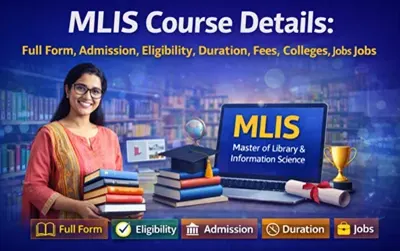Top 10 Tips to Choose Right University: A Quick Guide
Introduction
Choosing the right university is an important decision that can have a significant impact on your academic and professional future.
Different universities have different academic standards and approaches to teaching. Choosing the right university can ensure that you receive a high-quality education that matches your academic interests and career goals. Graduating from a reputable university can give you an advantage in the job market and open doors to career opportunities.
Moreover, the university you choose can also provide opportunities to network with alumni, professors, and industry professionals. Building connections can help you gain insights into the job market and find career opportunities. It's important to choose a university that offers a supportive community, a wide range of extracurricular activities, and a campus culture that aligns with your values and interests. As it will also provide you with opportunities that can shape your social life and extracurricular experiences. Some universities may offer unique research opportunities, access to industry hubs, or connections with local businesses that can help you gain practical experience and launch your career.
Choosing the right university requires careful consideration of your academic interests, career goals, and personal preferences. In the blog, we have listed the top 10 tips that you can consider while choosing the right university. Continue reading!
Read Also - 10 Essential Factors to Consider When Selecting Your Ideal University
Top 10 Tips to Consider for Selecting Right University in India
Selecting the best private university in India is a crucial decision that can significantly impact a student's future career and personal growth. Here are the top 10 tips to consider when selecting the right university:
Tip 1: Determine Your Educational Goals and Needs
When it comes to pursuing education, it is essential to have clear goals and needs in mind to ensure that you make the most of your educational experience. The first step in determining your educational goals and needs is to identify your academic interests and career aspirations. This will help you decide which degree program or courses to pursue.
Well, there are different types of degrees you can pursue, such as associate, bachelor's, master's, and doctorate degrees. Each type of degree has different requirements, and you should consider which degree best suits your career aspirations. Also, knowing your learning style and preferences can help you choose a learning environment that works best for you. Remember that your education is a long-term investment in yourself, so take the time to research and choose wisely.
Tip 2: Research the University's Reputation and Ranking
When researching a university's reputation and ranking, there are several factors to consider, including rankings and reviews from reputable sources, accreditation and affiliations, and the faculty and their research interests and achievements. Rankings can give you a sense of a university's overall reputation, as well as its strengths in specific subject areas.
- Check the university's website to see if it is accredited by a recognized accrediting agency.
- Check the university's website and departmental websites to learn more about the faculty members and their research interests and achievements.
- Reach out to current students or alumni of the university to learn about their experiences and impressions of the institution. They can provide valuable insights that may not be reflected in rankings or official information. By considering these factors, you can gain a better understanding of a university's reputation and ranking and determine if it is the right fit for you.
Tip 3: Evaluate the Quality of Academic Programs
evaluating the quality of academic programs is an important step in choosing the right program for your academic and career goals. It's important to research and compare multiple programs before making a decision and to consider factors such as the reputation of the institution, the cost of tuition and fees, and the potential for future career opportunities.
- You can review the course catalogue or program website to get an idea of the courses offered and the sequence of courses.
- The quality of teaching and learning resources can impact the effectiveness of the program. Look for the qualifications and experience of the faculty, the quality of the academic facilities, and the availability of learning resources.
- Look for information on the availability of research opportunities, internships, and other practical training opportunities offered by the program.
Tip 4: Consider the Location and Environment
It is essential to ensure the safety and security of the campus or the surrounding areas before deciding. When considering a location and environment for a particular university for admission, there are a few key factors to consider: Consider the accessibility of the location to your daily needs, such as grocery stores, pharmacies, medical facilities and public transportation. Evaluate the availability of nearby amenities and services that may be important to you, such as restaurants, shopping centres, parks, gyms, and recreational facilities. Check out the lighting, visibility, and general atmosphere of the surrounding areas to ensure that you feel safe walking around. By considering these factors, you can find a university that is not only a good academic fit but also meets your needs in terms of location and environment.
Tip 5: Assess the Cost and Financial Aid Options
Estimating the total cost of attendance and evaluating financial aid options is an essential step when considering higher education. Before making any decisions, it's crucial to estimate the total cost of attendance, which includes tuition, fees, books, housing, transportation, and other living expenses. Make sure to include any hidden or unexpected costs that may arise. Make sure to research and apply for all the options available to you. Don't forget to look for external scholarships as well. Assess the potential return on investment of your education by considering factors such as your chosen career path, the earning potential of your chosen field, and the job market in your area. This will help you determine whether the cost of your education is worth the potential benefits. Also, if you need additional help, seek advice from financial aid counsellors and discuss your options and any concerns you may have. Tip
Tip 6: Check the Admission Requirements and Process
When applying to universities, it is important to carefully review the admission requirements and process for each university you are considering. By taking the time to carefully review the admission requirements and process for each university you are considering, you can increase your chances of submitting a strong application and ultimately being accepted to the university of your choice. • Review the admission criteria and deadlines • Prepare your application materials and ensure they meet the requirements • Understand the admission decision process and timeline Tip
Tip 7: Evaluate the Student Support Services
The quality of student support services can have a significant impact on your academic and personal success, so take the time to evaluate them carefully when choosing a university.
- Academic and personal support: Look for services and resources that can help you succeed academically, such as tutoring, writing centres, study groups, academic advising, mental health counselling, wellness programs and disability services.
- Career services and alumni network: Check the quality of the career services available to students, such as job search resources, resume workshops, and career fairs. Also, look for an active alumni network that can provide mentorship and networking opportunities after you graduate.
- Diversity and inclusiveness: Identity for initiatives and programs that promote diversity and inclusiveness, such as multicultural centres, affinity groups, and diversity training programs.
Tip 8: Consider the Extracurricular Activities and Culture
The extracurricular activities and culture of a college or university can greatly impact your experience there.
- See what kinds of clubs and organisations are offered on campus.
- Check out the sports and fitness facilities on campus.
- Evaluate the cultural and social events offered on campus. These types of events can enrich your college experience and help you learn more about the world around you.
Tip 9: Visit the Campus and Talk to Current Students and Alumni
Campus tours are a great way to get a feel for the layout of the campus and see its facilities. Hence, schedule a campus tour and attend an information session. These sessions provide an overview of the university’s academic programs, extracurricular activities, and admission process. Talk to current students and alumni. Speaking with current students and alumni can give you a sense of the campus culture, student life, and opportunities for involvement. You can ask about their experiences with academics, social life, campus resources, and career opportunities. Alumni can also provide insight into how their education at the university has impacted their career path. As you walk around campus, pay attention to the atmosphere and vibe. Observe how students interact with each other, how they use campus facilities and the overall feel of the campus. This can help you determine whether the university is a good fit for you.
Tip 10: Trust Your Gut Feeling and Make an Informed Decision
Deciding which university to attend is a significant one, and it's essential to take time to reflect on your research and evaluation before making a choice. However, it's equally important to trust your gut feeling and make a decision that feels right for you.
While researching and evaluating universities, you may find yourself overwhelmed with information, and it can be challenging to make sense of it all. That's why taking time to reflect and prioritize what matters most to you can help you make an informed decision.
After conducting research and evaluating your options, you may find that one university stands out to you more than the others. Trusting your intuition and making a decision that feels right for you can help you avoid second-guessing your choice later.
Remember, choosing a university is a significant decision, but it's not a final one. You can always transfer or pursue further education after completing your degree. So don't put too much pressure on yourself to make a perfect choice. Instead, make the best decision you can with the information you have at the time and keep an open mind for future opportunities.
Conclusion
In conclusion, choosing the right university is important because it can impact your quality of education, career opportunities, networking opportunities, research opportunities, and overall university experience.
Attending a reputable university with experienced faculty and a strong curriculum can provide a solid foundation for one's future career. Additionally, universities with strong alumni networks and partnerships with industry leaders can offer valuable connections and opportunities for internships, research, and job placements. Therefore, it is crucial to do your research and choose a university that aligns with your academic and professional goals.
Why choose Mangalayatan University?
Mangalayatan University, Aligarh is a great choice for students seeking academic and professional success. It is a well-established university with a diverse range of programs and a commitment to providing high-quality education to its students. The faculty is highly experienced and dedicated to helping students achieve their academic and professional goals. Additionally, the university has strong industry partnerships and a vibrant alumni network, providing students with valuable opportunities to gain practical experience and build their professional networks.
Also, the university offers a range of resources and facilities to support student learning and development. From state-of-the-art classrooms and laboratories to a well-stocked library and a range of extracurricular activities, the university provides students with everything they need to excel academically and personally. Overall, choosing the right university is a critical decision for students looking to achieve academic and professional success. Mangalayatan University, Aligarh is a great choice for those seeking a high-quality education, valuable industry connections, and a supportive learning environment.





